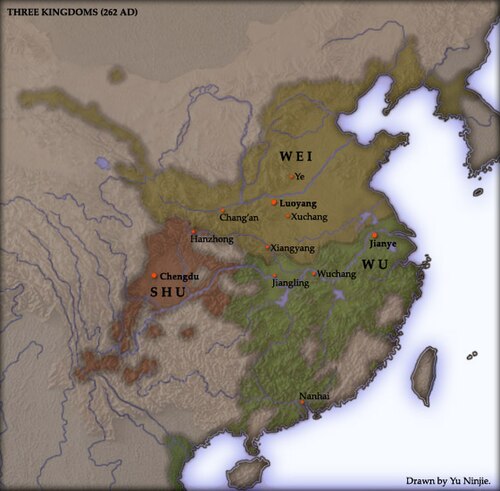This article needs additional citations for verification .(November 2024) |
| Years |
|---|
| Millennium |
| 1st millennium |
| Centuries |
| Decades |
| Years |
| 263 by topic |
|---|
| Leaders |
| Categories |
| Gregorian calendar | 263 CCLXIII |
| Ab urbe condita | 1016 |
| Assyrian calendar | 5013 |
| Balinese saka calendar | 184–185 |
| Bengali calendar | −331 – −330 |
| Berber calendar | 1213 |
| Buddhist calendar | 807 |
| Burmese calendar | −375 |
| Byzantine calendar | 5771–5772 |
| Chinese calendar | 壬午年 (Water Horse) 2960 or 2753 — to — 癸未年 (Water Goat) 2961 or 2754 |
| Coptic calendar | −21 – −20 |
| Discordian calendar | 1429 |
| Ethiopian calendar | 255–256 |
| Hebrew calendar | 4023–4024 |
| Hindu calendars | |
| - Vikram Samvat | 319–320 |
| - Shaka Samvat | 184–185 |
| - Kali Yuga | 3363–3364 |
| Holocene calendar | 10263 |
| Iranian calendar | 359 BP – 358 BP |
| Islamic calendar | 370 BH – 369 BH |
| Javanese calendar | 142–143 |
| Julian calendar | 263 CCLXIII |
| Korean calendar | 2596 |
| Minguo calendar | 1649 before ROC 民前1649年 |
| Nanakshahi calendar | −1205 |
| Seleucid era | 574/575 AG |
| Thai solar calendar | 805–806 |
| Tibetan calendar | ཆུ་ཕོ་རྟ་ལོ་ (male Water-Horse) 389 or 8 or −764 — to — ཆུ་མོ་ལུག་ལོ་ (female Water-Sheep) 390 or 9 or −763 |

Year 263 ( CCLXIII ) was a common year starting on Thursday of the Julian calendar. At the time, it was known as the Year of the Consulship of Albinus and Dexter (or, less frequently, year 1016 Ab urbe condita ). The denomination 263 for this year has been used since the early medieval period, when the Anno Domini calendar era became the prevalent method in Europe for naming years.